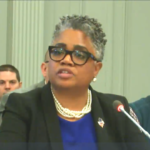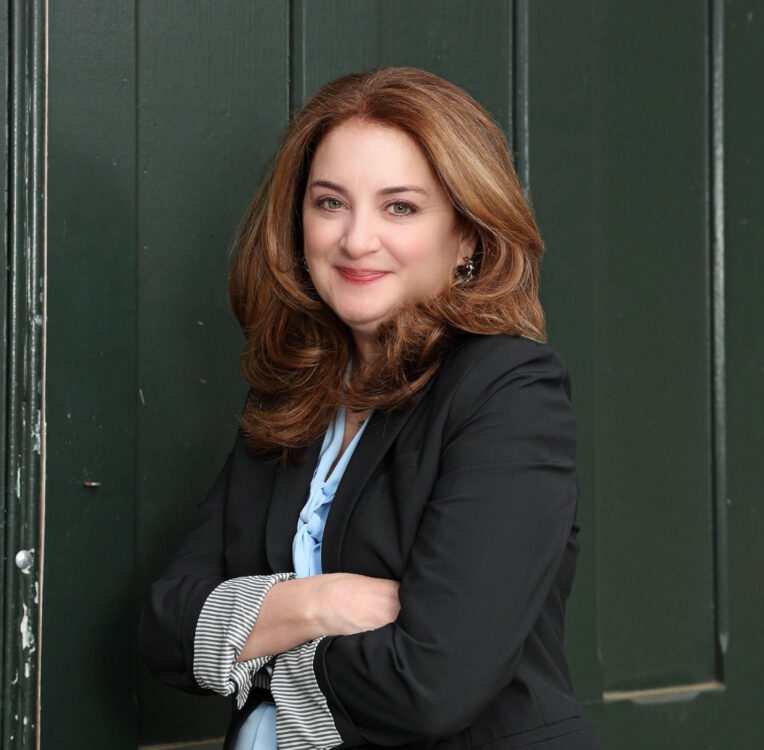
Education Commissioner Concedes State Tutoring Programs Are Falling Short of Projected Goals
October 4, 2023
What Does Tammy Murphy Have To Do With NJ’s Math And Reading Standards?
October 4, 2023What I Learned When I Stopped Trusting The System: A Mother’s Journey to Support Her Child and All Children In Learning to Read.
Meghann Bierly is a mother of a struggling reader using her personal journey, experience, and expertise to improve literacy for all children. Meghann is the Founder of Keel Services, an Educational and Parenting Consultant, a school psychologist and a community organizer advocating for children, families and educators.
She knew long before I did that reading was going to be challenging. I thought I must be missing something because my daughter was four years old and I am a certified school psychologist with years of experience diagnosing and developing intervention plans for struggling readers and children with unique needs.
I was missing something (several somethings):
- The appropriate understanding of how the human brain learns to read.
- The awareness that our brains weren’t wired for reading (watch Blame It On Gutenberg).
- The training as an educator and specialist to identify the needs of struggling readers and develop intervention plans, and lead child study teams with evidence based effective strategies.
My confidence in my abilities and my expertise all came crashing down when I became the mother of a struggling reader. I had a child who loved being read to, who loved books, who loved learning, who had an imagination and curiosity I could barely keep up with, a child who had a sense of humor and was constantly looking for new material and manipulating words and reality to entertain any adults that would engage, a child that had a world view and empathic approach to make people smile and provide care to anyone in need.
- Preschool teacher told me, “Don’t worry, she is so smart it will click once she gets to school.”
- Kindergarten teacher told me, “Don’t worry, she is so bright she is just a whole language learner, give her time, it will all come together, it will click.”
- First grade teacher told me, “Keep reading at home, even if she doesn’t want to read, read to her, they are tired after a full day of school.”
- Second grade teacher told me, “ Yes, we see some discrepancies and low scores, but we will give her support and she will learn.”
- Special educators and reading specialists in the public school told me, “She is learning but it will take time, she will always be a slow reader, you need to deal with your denial that your child has a disability and will always struggle with reading and always be slow.”
When I stopped blindly trusting the system and started asking the real questions, they didn’t have answers. The responses they did share were not supported by evidence-based practice or research. I realized my daughter had a team of educators and administrators that did not have the training or the understanding they needed to meet her needs and the administrative or district support to implement the evidence- based practices they had training and understanding in.
So I took a step back and started spending my time (and money) learning everything I could to support my daughter. I started hiring experts to guide and advise me how to meet my daughter’s needs and support her teachers. I believed there was something missing from my understanding, but what I found is a broken system that is not supporting our teachers, our children, or our communities. Unfortunately, few families are fortunate enough to live in an area with expert resources, the funding or support to hire these experts, the flexibility in their schedules to provide therapies and tutors and/or homeschool, or the ability to pay for private schools that are able to meet their children’s needs through evidence-based practice. Far too few are able to avoid the trauma our children (and their teachers) are suffering in our classrooms because teachers are not provided with the training or materials to effectively teach children to read.
So this is where my journey started, when I started charting a new path for my child, for my community, and for my purpose and career. I had learned too much to walk away; my motivation (not all positive) was a messy mixture of proving the point that my child was capable of learning and influencing systemic change aligned to evidence-based practice for all children. I felt deep empathy for struggling families, whom I committed years ago to serve. I decided I had to keep advocating for my child and all children and their teachers.
Then Sold a Story: How Teaching Kids to Read Went So Wrong | Podcast broke and the national attention on the issues I had been quietly dealing with and feeling so alone and defeated in my efforts were all over the headlines. People were listening! This journey is so isolating for parents and children, especially parents also in the education system. My distrust in the system had to be a secret before because questioning current practice is often met with defensiveness and/or personal attacks on our parenting, on our education, on our intellect. This isolation is purposeful and part of the systemic problem as it insulates and protects the status quo. This exacerbates inequities faced by children learning to read: if you are lucky enough to have parents with the resources – education, time, and financial resources to seek evaluation, and provide appropriate instruction– you can access reading interventions and will learn to read. However, if a child is not lucky enough to have access to these resources there is little hope and the opportunities to learn to read will dwindle with each passing year as they pass through elementary school. Because if a child hasn’t received appropriate instruction they are unlikely to be able to access it publicly once they pass through these early elementary years.
So I am using my journey, my experience, my expertise, and my voice to continue to network and provide resources to parents and teachers who share the vision of a society where all children learn to read in their schools and teachers are provided with appropriate training, support, and tools to teach effectively.




